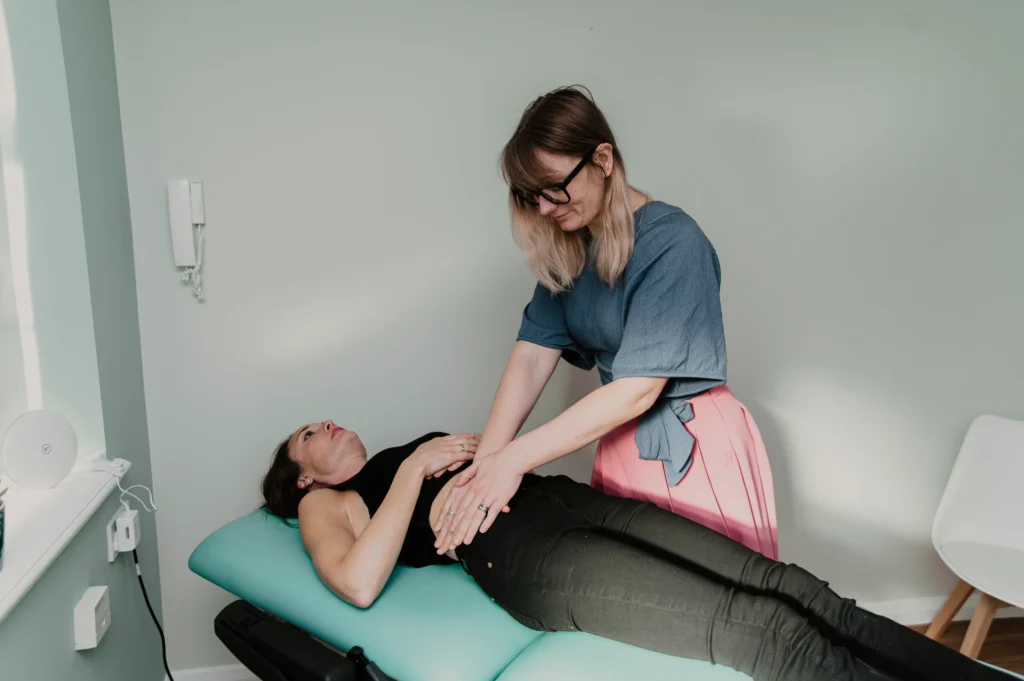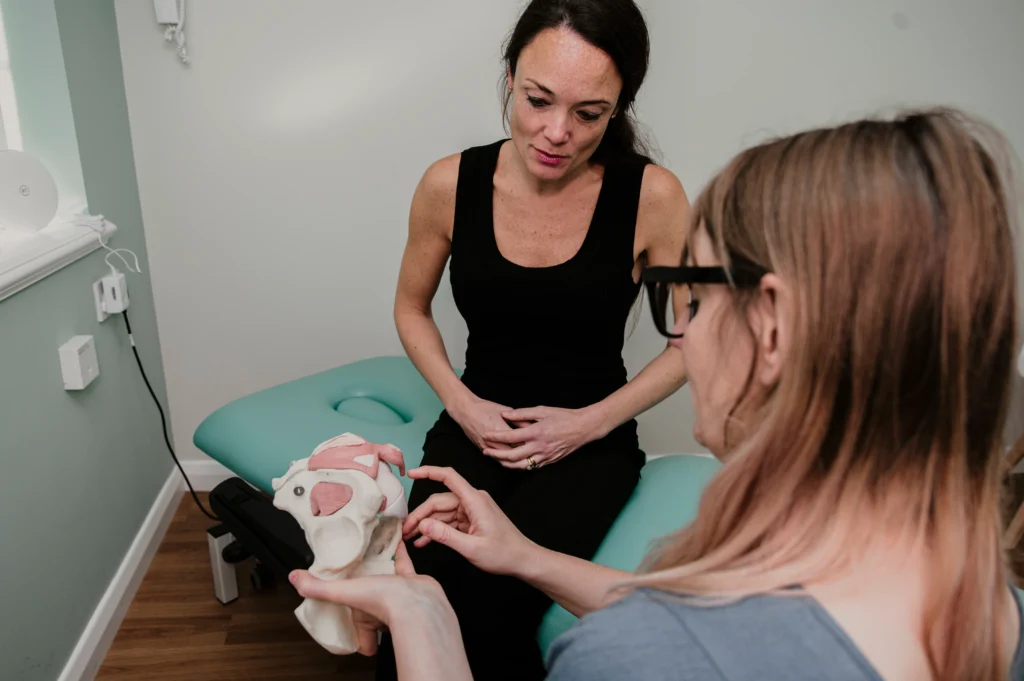Prolapse
Prolapse
Pelvic Organ Prolapse
Being diagnosed with pelvic organ prolapse can feel overwhelming. You may feel like you can’t so much as sneeze without risking making the prolapse worse. You may not know what can help. But the good news is that often, prolapse is treatable with physiotherapy, without the need for surgery.
This condition occurs when pelvic organs move from their usual place down into the vagina. It can happen due to changes in the vaginal wall following pregnancy, menopause or surgery.
Prolapse usually causes symptoms of heaviness or bulging in the vagina, but can also make sex feel different or make it difficult for a tampon to stay in. If you’ve visited a GP and they have made you feel as though it’s “all in your head”, please get in touch with us – IT IS NOT ALL IN YOUR HEAD! And we can help you overcome your symptoms without the need for invasive procedures.


There are three main types of prolapse:
- Anterior vaginal wall – aka cystocele or bladder prolapse, where the front wall of the vagina allows the bladder to fall in.
- Uterine / vaginal vault (if hysterectomy) where the cervix sits lower in the vagina
- Posterior vaginal wall – aka rectocele, enterocele or rectum prolapse, where the back wall of the vagina allows the bowels to fall in.
There are different degrees – mild (prolapse is inside the vagina), moderate (the prolapse is as low as the vaginal opening) and severe (the prolapse comes out of the vagina). Pelvic organ prolapse symptoms vary greatly and do not necessarily reflect the size of the prolapse.
Symptoms can be impacted by how you move your body, the time of day or even your hormones. That’s why we, at Thrive, help you to manage your prolapse symptoms by taking time to understand your body’s journey. Too often women don’t seek help because they’re ashamed or embarrassed. Or perhaps they have had a bad experience with an apathetic GP or specialist. This is very common and many of the women who visit our Physiotherapy clinics in Sheffield explain that they waited a long time to get help. You deserve better! We’re here to empower you – we’ll listen, believe you and provide targeted treatment so you can enjoy your life free from the symptoms!
We’ll take a full body approach to assess your prolapse to understand how your muscles, posture or other tissues may be impacting it. Through this detailed approach, we’ll help you to understand your symptoms and create a bespoke therapy programme to manage and improve them.
At Thrive, as we assess you as a whole, we will never offer a vaginal examination on your first assessment. Instead, we’ll start by assessing how your pelvic floor is working with the rest of your body and what other muscles may be impacting your pelvic floor’s ability to support your bladder.
If, at a future appointment, we believe that a vaginal examination would be helpful to further assess your pelvic floor and optimise your treatment, we will discuss this with you; and the decision will always be yours.
If you are experiencing feelings of heaviness, bulging or ‘something coming out’, you do not need to live with these symptoms!

Testimonials


